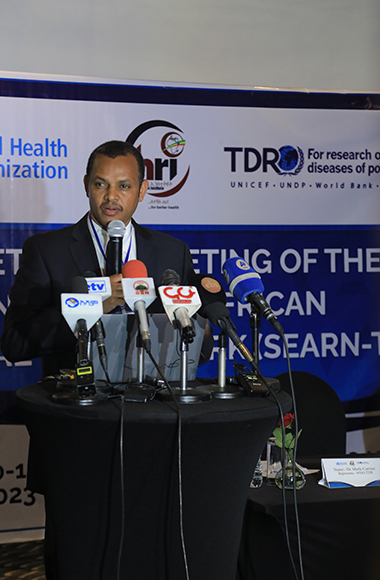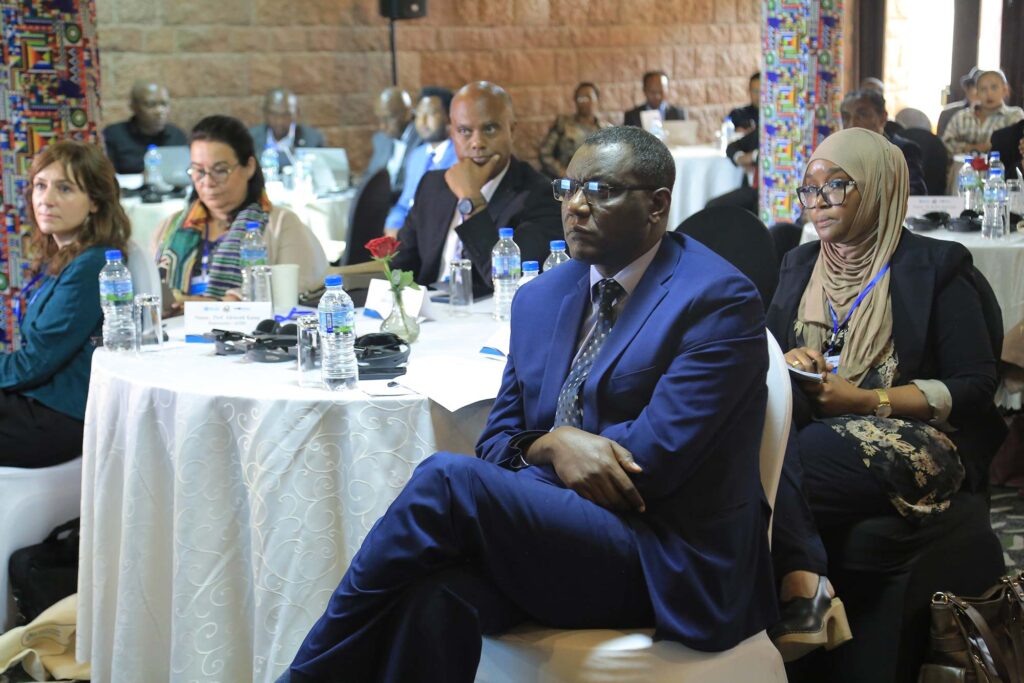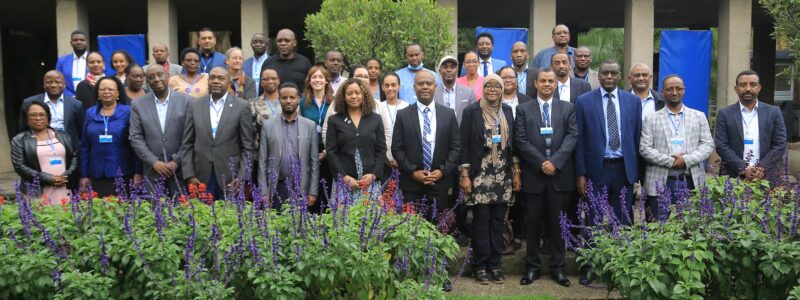The first network meeting of the Southern and Eastern African Regional Network for TB (SEARN-TB) is well underway in Addis Ababa. NTP Managers, TB Coordinators, and other communicable disease managers joined from Ethiopia, Djibouti, Somalia, Somaliland, Uganda, South Africa, Namibia, Zambia, Lesotho, Seychelles, Comoros, Mozambique, Eswatini, Botswana, Malawi, and Madagascar shared Epidemiological Context, Challenges, and Program Specific TB issues of each participating country.
The National TB Program manageres and representatives are gathered to deliberate on the process to realize the third regional TB Research Network in Africa, which is aimed at facilitating greater communication and cooperation between NTPs and partners, promote harmonization of strategies and best practices for TB Control across member states, support research, implementation and enhance advocacy and resource mobilization efforts towards ending the TB epidemic.
Dr. Abera Bekele, Senior Advisor for the state minister at MoH- Ethiopia, delivering an opening remark acknowledged WHO/TDR’s commitment to providing yet another support for the establishment of SEARN-TB, based on lessons learned from Western and Central African Countries. “We are hugely thankful to the WHO/TDR, and Robert Koch Research Institute, Germany”
The senior advisor stressed the need for regional collaboration, mentioning the fact that TB patients are crossing borders while national TB response endeavors mostly remains within the boundaries of individual Countries.
“Collaboration among African counties to achieve the end TB strategy is critical as each National TB Program (NTP) in Africa has unique strengths and best practices that can be transferred to other NTPs.”
Dr. Abera Bekele, MoH
Dr. Abera assures MoH Ethiopia’s support for the network. He also “call upon academic institutions, research institutions and partner organizations such as WHO-AFRO and Africa CDC to join hands in realizing the mission of the network.”


Prof. Afework Kassu, Director general of AHRI and Chair Person of TRAC, on the occasion shared AHRI’s experience in TB research over the past couple of decades. The director general said AHRI has conducted various researches on Tuberculosis and published on popular journals. He also highlighted TRAC’s contribution in the National TB program of Ethiopia and the major achievements made so far.
Prof. Afework said the challenges in TB programs of different countries are the same. And this is an opportunity to work on the common problems, and “justify why we are together” as SEARN-TB.
Representing WHO Dr. Nonhlanhla Dlamini, acting WR, stated that TB is a major cause of ill health and one of the leading causes of death worldwide. “According to the 2022 WHO global TB report, there were 10.6 million TB cases and 1.6 million deaths.”
Dr. Dlamini said, despite various challenges the TB response of Ethiopia has made significant progress in TB prevention and control in the past decades, through adoption and implementation of WHO recommended strategies.
“Currently Ethiopia has achieved a 35% reduction in TB incidence against the 20% END TB strategy milestone of 2020. It also reduced TB mortality by over 34% against END TB milestone of 35% in 2020.”
Dr. Dlamini Nonhlanhla, WHO
The incidence of TB in Ethiopia is estimated at 119 per 100,000 people of which 25% is missing cases.
The first meeting of SEARN-TB aims to cement the establishment of the new regional TB network which will strengthen the coordination and harmonization of TB control approach across Southern and East African countries. The network hopes to promote good implementation practices, operational research and the efficient use of research outcomes to strengthen TB control. Is also believed to yield opportunities for training and capacity building.
MoH, AHRI and WHO jointly organize the meeting.










